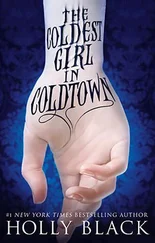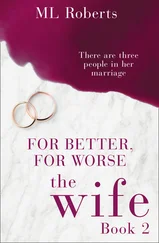The funny thing was that he hadn’t seemed particularly interested in her before she lunged at him. It was as though, by putting her lips to his—and, okay, allowing a certain amount of handsiness—she’d transformed herself into some kind of cruel goddess of love.
“The sweater is new,” she told him, nodding. Around him, she felt as coldhearted as he clearly thought she was. “Well, I guess I’ll see you around.”
“Yeah,” he said, letting the word linger.
And then, at the critical moment, the moment when she meant to just walk away, guilt overtook her and she said the one thing she knew she shouldn’t say, the thing for which she would kick herself over and over again throughout the night. “Maybe we’ll run into each other later.”
Hope lit his eyes, and, too late, she realized how he’d taken it—as a promise. But by then all she could do was hightail it over to Jack and Carter.
Jack—the crush of Hazel’s younger, sillier years—looked surprised when she stumbled up, which was odd, because he was almost never caught off guard. As his mother once said about him, Jack could hear the thunder before the lightning bothered to strike.
“Hazel, Hazel, blue of eye. Kissed the boys and made them cry,” Carter said, because Carter could be a jerk.
Carter and Jack looked almost exactly alike, as if they were twins. Same dark, curly hair. Same amber eyes. Same deep brown skin and lush mouths and wide cheekbones that were the envy of every girl in town. They weren’t twins, though. Jack was a changeling— Carter’s changeling, left behind when Carter got stolen away by the faeries.
Fairfold was a strange place. Dead in the center of the Carling forest, the haunted forest, full of what Hazel’s grandfather called Greenies and what her mother called They Themselves or the Folk of the Air. In these woods, it wasn’t odd to see a black hare swimming in the creek—although rabbits don’t usually much care for swimming—or to spot a deer that became a sprinting girl in the blink of an eye. Every autumn, a portion of the harvest apples was left out for the cruel and capricious Alderking. Flower garlands were threaded for him every spring. Townsfolk knew to fear the monster coiled in the heart of the forest, who lured tourists with a cry that sounded like a woman weeping. Its fingers were sticks, its hair moss. It fed on sorrow and sowed corruption. You could lure it out with a singsong chant, the kind girls dare one another to say at birthday sleepovers. Plus there was a hawthorn tree in a ring of stones where you could bargain for your heart’s desire by tying a strip of your clothing to the branches under a full moon and waiting for one of the Folk to come. The year before, Jenny Eichmann had gone out there and wished herself into Princeton, promising to pay anything the faeries wanted. She’d gotten in, too, but her mother had a stroke and died the same day the letter came.
Which was why, between the wishes and the horned boy and the odd sightings, even though Fairfold was so tiny that the kids in kindergarten went to school in an adjacent building to the seniors, even though the town was so small that you had to go three towns over to buy a new washing machine or stroll through a mall, the town still got plenty of tourists. Other places had the biggest ball of twine or a very large wheel of cheese or a chair big enough for a giant. They had scenic waterfalls or shimmering caves full of jagged stalactites or bats that slept beneath a bridge. Fairfold had the boy in the glass coffin. Fairfold had the Folk.
And to the Folk, tourists were fair game.
Maybe that’s what the Host had thought Carter’s parents were. Carter’s dad was from out of town, but Carter’s mom was no tourist. It took a single night for her to realize that her baby had been stolen. And she’d known just what to do. She sent her husband out of the house for the day and invited over a bunch of neighbor ladies. They’d baked bread and chopped wood and filled an old earthenware bowl with salt. Then, when everything was done, Carter’s mom heated a poker in the fireplace.
First, it turned red, but she did nothing. It was only once the metal glowed white that she pressed the very tip of the poker against the changeling’s shoulder.
It shrieked with pain, its voice spiraling so high that both kitchen windows shattered.
There’d been a smell like when you toss fresh grass onto a fire, and the baby’s skin turned bright, bubbling red. The burn left a scar, too. Hazel had seen it when she and Jack and Ben and Carter went swimming last summer—stretched out by growing, but still there.
Burning a changeling summons its mother. She arrived on the threshold moments later, a swaddled bundle in her arms. According to the stories, she was thin and tall, her hair the brown of autumn leaves, her skin the color of bark, with eyes that changed from moment to moment, molten silver to owl gold to dull and gray as stone. There was no mistaking her for human.
“You don’t take our children,” said Carter’s mother—or at least that’s how the story Hazel heard went, and she’d heard the story a lot. “You don’t spirit us away or make us sick. That’s how things have worked around here for generations, and that’s how things are going to keep on working.”
The faerie woman seemed to shrink back a little. As if in answer, she silently held out the child she’d brought, wrapped up in blankets, sleeping as peacefully as if he were in his own bed. “Take him,” she said.
Carter’s mother crushed him to her, drinking in the rightness of his sour-milk smell. She said that was the one thing the Folk of the Air couldn’t fake. The other baby just hadn’t smelled like Carter.
Then the faerie woman had reached out her arms for her own wailing child, but the neighbor woman holding him stepped back. Carter’s mother blocked the way.
“You can’t have him,” said Carter’s mother, passing her own baby to her sister and picking up iron filings and red berries and salt, protection against the faerie woman’s magic. “If you were willing to trade him away, even for an hour, then you don’t deserve him. I’ll keep them both to raise as my own and let that be our judgment on you for breaking oath with us.”
At that, the elf woman spoke in a voice like wind and rain and brittle leaves snapping underfoot. “You do not have the lessoning of us. You have no power, no claim. Give me my child and I will place a blessing on your house, but if you keep him, you will come to regret it.”
“Damn the consequences and damn you, too,” said Carter’s mom, according to everyone who has ever told this story. “Get the hell out.”
And so, even though some of the neighbor ladies grumbled about Carter’s mother borrowing trouble, that was how Jack came to live with Carter’s family and to become Carter’s brother and Ben’s best friend. That’s how they all got so used to Jack that no one was surprised anymore by how his ears tapered to small points or how his eyes shone silver sometimes, or the way he could predict the weather better than any weatherman on the news.
“So do you think Ben’s having a better time than we are?” Jack asked her, forcing her thoughts away from his past and his scar and his handsome face.
If Hazel took kissing boys too lightly, then Ben never took it lightly enough. He wanted to be in love, was all too willing to give away his still-beating heart. Ben had always been like that, even when it cost him more than she wanted to think about.
However, even he didn’t have much luck online.
“I think Ben’s date will be boring.” Hazel took the beer can from Jack’s hand and swigged. It tasted sour. “Most of them are boring, even the liars. Especially the liars. I don’t know why he bothers.”
Читать дальше










